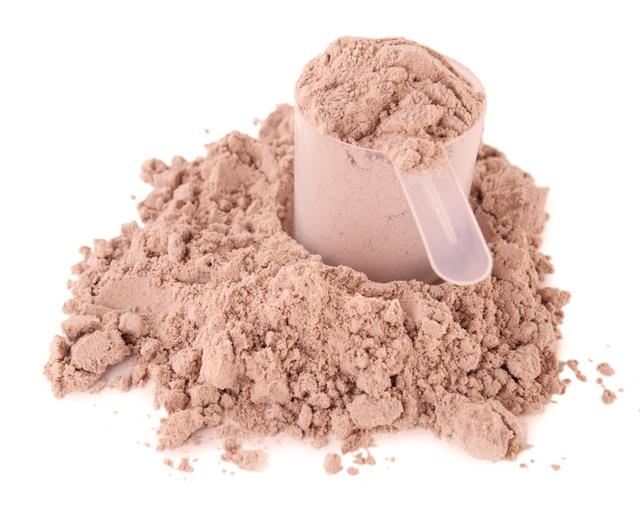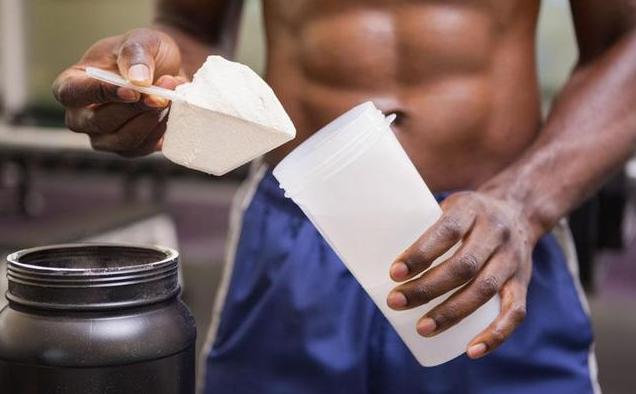Let's talk about the protein powder that everyone is most concerned about and most familiar with.
If you've been to the gym, you've definitely heard the people standing around the equipment talking about the protein powders they drink after their workouts and which flavors and brands they prefer. Protein powder, as a nutritional supplement, is arguably the most widely used supplement of all the various supplements out there, and there is no one.
You can buy protein powders in stores, at the gym and online. But is protein powder just for bodybuilding (professional) athletes? Or can the average person benefit from it too? Let's talk about it today.

What is a protein powder
Protein powders come in many forms. The three most common are whey protein, soy protein, and casein.

Whey protein is the most commonly used because it is a water-soluble milk protein and it is also a complete protein, so it has all of these advantages. (Complete proteins contain all nine amino acids needed for the human diet.) Vegans may prefer soy protein, but soy protein doesn't taste as good comparatively, and it doesn't dissolve as well in water.
The price of protein powders also varies widely. For the average trainer who doesn't have specific needs in their training, cost isn't as important. So, if you plan to use them, you can get almost the same benefits from cheaper, more commercially available proteins.
The first thing to be sure of is that protein powders are useful. They are an easy, convenient source of complete, high-quality protein. But remember the key point is that most people, even athletes, can get everything they offer by consuming lean proteins such as meat, fish, chicken and dairy products (daily diet is the basis).
So what situations use them
There are several situations in which the average person needs to consume more protein.
When you are growing up. A teenager needs more protein to fuel his workouts because his body is still growing and usually needs more protein.
When you start a training program. If training is something foreign to you and you want to build muscle, then you need more protein than usual.
When you increase the volume of exercise. If you usually work out for half an hour a few times a week, but now you decide to train for a half marathon (a big increase over your original training), your body will need more protein.
When you're recovering from an injury. Athletes with sports injuries usually need more protein to help them heal.

If you are going to become a vegetarian. People who pursue a vegan or vegetarian lifestyle exclude some common sources of protein from their diet, including meat, chicken, fish, and sometimes dairy products and eggs. Then you have to get more protein from other foods (or supplements).
All of these are reasons to get more protein in your diet, and using protein powders is considered one way to do that.
But one thing to remind everyone is that it doesn't take that much protein to achieve any of these goals. For most people who eat a reasonable diet and have a more balanced nutritional intake, the body needs to increase its protein intake by another 10 to 14 grams per day to keep gaining muscle.

If you look at it this way, there is no need to add that much extra protein if you are eating a reasonable nutritional diet. This is because many protein powders contain about 80 grams of protein per 100 grams. You don't need to supplement too much because your body will break down what it can't use into energy (or even store it as fat), while too much protein can put a strain on the kidneys and liver.
Calculating protein
So how do you know if you're getting enough protein? Let's do the math.
The following are daily recommendations for protein intake (data from various research institutions vary slightly below for reference only):
Adults need an average of 0.8 grams of protein per kilogram of body weight per day.
People who participate in recreational sports need 1.1 to 1.4 grams of protein per kilogram of body weight;
Competitive athletes need 1.2 to 1.4 grams of protein, while those involved in super endurance sports may need 2.0 grams of protein per kilogram of body weight;
Bodybuilders (professional trainers who build muscle) need 1.5 to 2.0 grams of muscle protein per kilogram per day;
Let's say you are an adult athlete who wants to gain muscle and you weigh about 75 kg. You need a maximum of 150 grams of protein per day. That sounds like a lot. But an extra-large burger may contain nearly 30 grams of protein, 200 grams of fish contains about 40 grams of protein, and 30 grams of cheese contains 8 grams of protein.

Advice for young athletes
Protein is also important for young athletes. Teenagers need an average of 0.8 to 1.2 grams of protein per kilogram of body weight per day. Adolescent athletes need more, 1.2 to 1.7 grams per kilogram per day.
However, supplements such as protein powders are not recommended for adolescents. Too much protein can put too much stress on the kidneys. It can also lead to dehydration. To avoid these risks, just make sure your child is getting enough protein from high-protein foods in his or her daily diet.

How to use protein powder
If you're calculating your protein intake after determining that you're not getting enough for your exercise needs. How can you best use protein powder to help you improve your performance?
First, ignore the conventional wisdom that you should take protein powder immediately after training. Carbohydrates are what your body needs before, during and after training. They are the fuel your body needs and your muscles depend on. While protein is also important for post-workout recovery, studies have shown that at that time, the body needs a 4 to 1 or 5 to 1 ratio of carbohydrates to protein. since most protein powders contain at least 20 grams of protein per scoop, you need 80 grams of carbohydrates to get the proper ratio!
If you want a better "recovery drink" after training, we recommend a glass of juice with yogurt or milk, or chocolate milk.

So when should I use protein powder
If you can get enough protein from your diet. Then, in addition to the traditional post-practice use, protein powder can be used as a snack or meal replacement at all times of the day, but not necessarily at the immediate time of training. The bottom line is that if you have a normal, healthy diet (with adequate nutritional intake), protein powder is not necessary.

Popular Articles
-
Nutritious and Healthy Rice Cereal with Low Fat in Spring

-
 Fitness Equipment | How to choose a suitable for their own yoga mat?
Fitness Equipment | How to choose a suitable for their own yoga mat?Nov 23, 2024
-
 What are the high style and practical home appliances?
What are the high style and practical home appliances?Nov 23, 2024
-
 Want a flatter belly? Fat loss before abdominal abuse
Want a flatter belly? Fat loss before abdominal abuseNov 23, 2024
-

Photos
The world's most beautiful big cities at nightNov 23, 2024
-
 Health Science Popularization of Clinicians | Hazards of Low Blood Pressure
Health Science Popularization of Clinicians | Hazards of Low Blood PressureNov 23, 2024







Comments
0